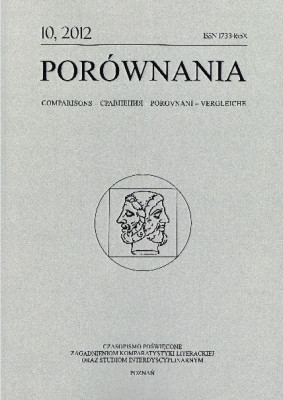Czesław Miłosz and Osip Mandelshtam on Word and Culture. Meetings and Dispersions
The aim of the article is an attempt to explain the reasons of the ambivalent attitude of Czesław Miłosz towards the lyric poetry of Osip Mandelshtam, which, on the one hand, was manifested through admiration for the Russian Acmeist on multiple occasions and, on the other hand, was marked with puzzling silence in the case of the most shocking works of the author of “Word and culture”. Finally, there was the iconoclastic comment on “The Stalin Ode”. The main object of these deliberations are potentially poetological – and not revisionist – sources of the ambivalence. Mandelshtam remains close to Miłosz mostly as an Acmeist, emphasizing the cultural functions of a poetic word. The promoter of the creative attitude that includes a harmonious balance between the attention to things and a word, considered as the place where one can meet everything that is sensual, existential and historical, as well as spiritual, universal and metaphysical. He becomes more distant as the author of “Rozmowa o Dantem” [“Conversa-tion about Dante”] in which the theory of crystallographic rhythm is expanded with a strong emphasis on the autonomy and autotelic properties of the poetic forms. Another equally important reason of the separation of Miłosz and Mandelshtam is a motive of progressive degradation, loss, lack of speech, which is taken over by history and remains unuttered by the lips of a dying person. This motive is very visible in the lateworks of the author of “Voronezh Notebooks”.
| Article Title | Type | Size |
|---|---|---|
| Agata Stankowska Czeslaw Milosz i Osip Mandelsztam o slowie i kulturze | [pdf] | [234 KB] |
